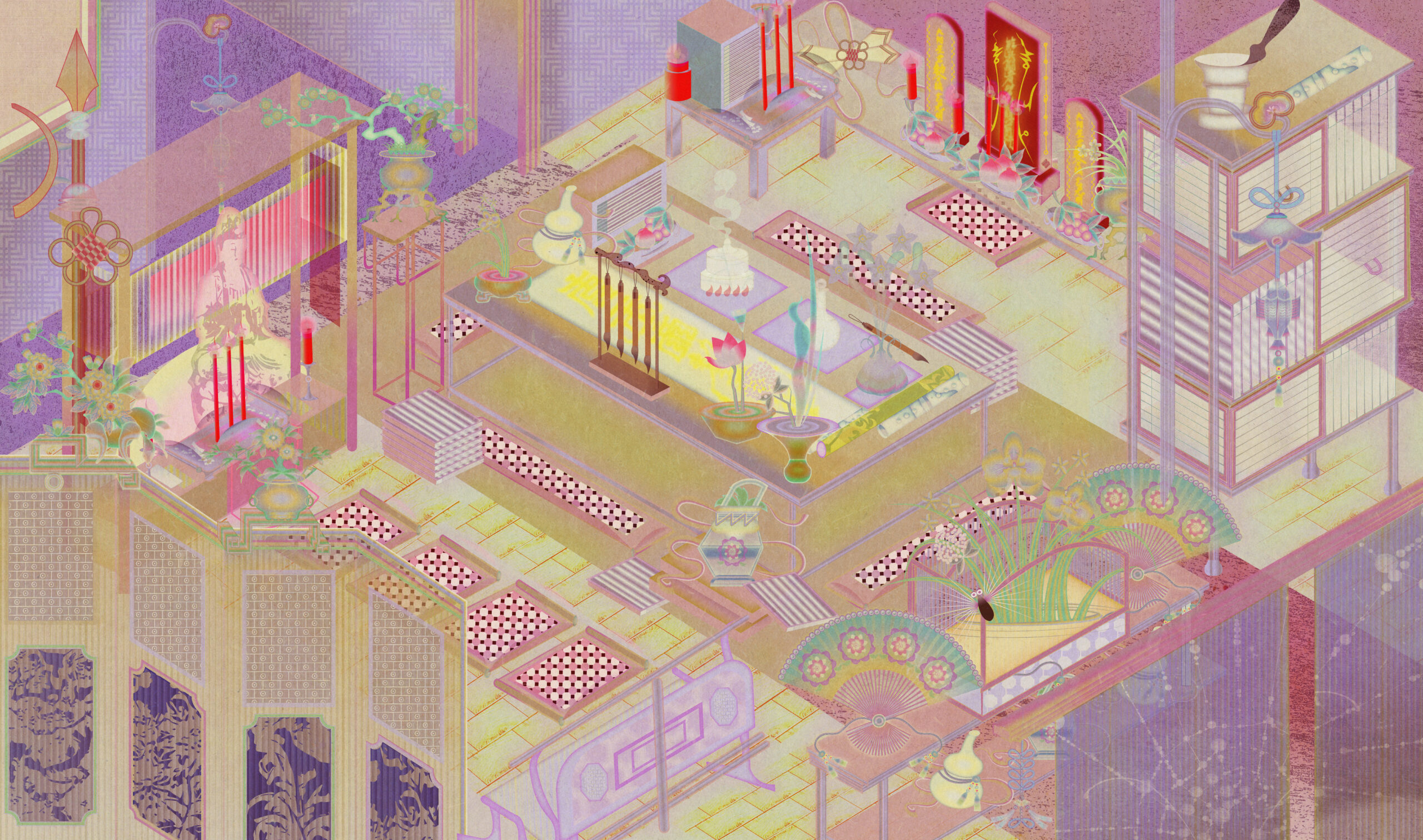SONG YUANYUAN: EXAMINING OBJECTS
| April 12, 2012 | Post In LEAP 13

Oil painting is dead, and if you believe the cynics, it has been for a long time. It died with the arrival of conceptual art, or photography, or Damien Hirst and those infernal YBAs— call it whenever you want, that does not change the fact that it’s still dead. Why paint anymore when there are so many other options? Why work in a medium so burdened with the weight of the art historical canon and tradition? Why privilege a medium that’s archaic, tedious, and inflexible when so many others are more versatile and efficacious?
There is no single answer— painting endures for many reasons— but most of them have something to do with the fetish of the object, favoring that which is physical over that which is not, or at least is less so. Song Yuanyuan’s latest solo show at Platform China is the pure and total embodiment of this fetish: titled “Examining Objects,” the exhibition consists entirely of oil paintings, each of which depicts objects or spaces rendered with consummate physical presence. Living rooms, hallways, tables, and chairs, in particular, are materialized in broad, heavy strokes thick with paint, so manifestly present both in spirit and in kind as to resist any and all denial. “Examining Objects” seems to posit that any common household object can be represented with an aggressive sense of heft and weight by oil painting.
But Song Yuanyuan acknowledges that it is not enough to simply depict objects; painting, after all, is Art, and should also be about Ideas. Song matches his dark, overwrought palette with dark, overwrought thematics. The space visited in Good, in which a trousered pair of legs disappears into the back of the chair they are seated upon, takes visual inspiration from the site of Saddam Hussein’s execution; Untitled depicts an empty execution chair, its leather straps and shackles slack against the wood. A single and stark source of light augments the threat and surrealist terror about the works.
Song Yuanyuan leaves words and symbols scattered across the surface of some paintings: the word “command” over a gesturing hand; “romance” and single, double, and triplestemmed notes sprinkled over a musty hallway; “carrying” over a set of upholstered chairs. These words are abstractions in comparison to the objects, thus drawing the viewer’s attention to the artifice of the medium.
Similarly, illogicalities in the physical order of Song Yuanyuan’s painted worlds disrupt their integrity. For example, Examining Objects 1 ostensibly presents a bourgeois living room, full of formidable furniture made of dark-grained wood. But a steel staircase floats without bearing in the middle. The staircase has no function in its given context, and its form seems to be defined by alien natural laws, laws that allow it to float without support and for its base to narrow into a sharp isosceles tip. The aberration is such that one almost does not notice the staircase’s presence until it is pointed out. In Polyhedron in Blue and Orange, these laws are reversed. Here, it is the furniture that does not make sense. Coffee tables and sitting chairs go uncomfortably unanchored in an amorphous blue living room-esque space, while the blue-and-orange-checkered polyhedron floating above them does achieve its logic.
There is no way to assimilate these words, symbols, mutilations, and freak floating objects with the wrought physical worlds in which they are depicted. They refuse the aesthetic logic of otherwise prosaic physical settings, cracks in the fetishistic elevation of painting as object, and of paintings of objects. “Examining Objects” is full of contradictions, and the show’s discordant tone is derived from these inconsistencies. But even if many of Song Yuanyuan’s themes feel stale and overburdened, “Examining Objects” is only the artist’s third solo exhibition, and it reveals the artist developing his own aesthetic and priorities, probing the limits of his chosen medium. Here’s to hoping Song does something interesting with those insights. Angie Baecker

